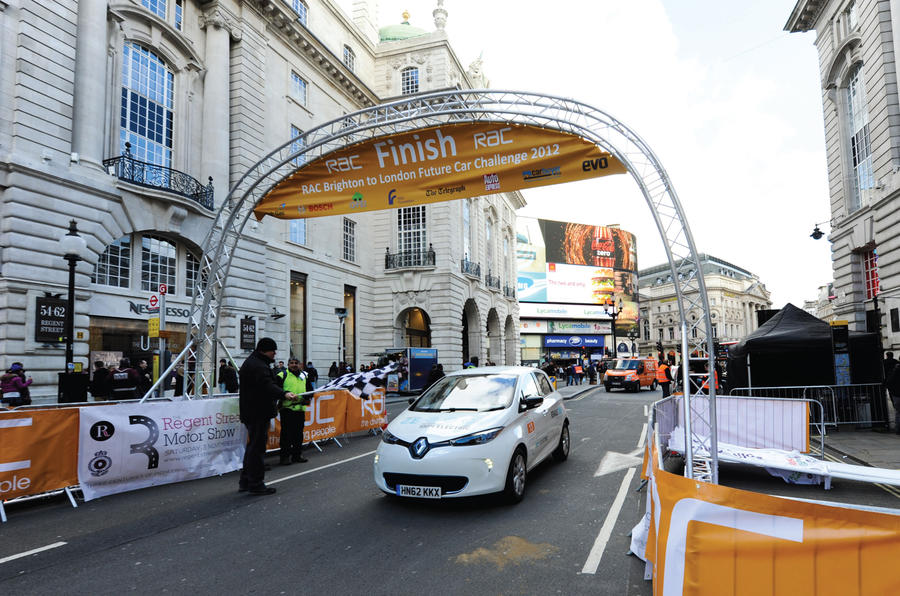Last week it was announced that the Future Car Challenge – a drive from Brighton to London held the day before the more famous London to Brighton run for veteran cars – would not run this year due to the late withdrawal of a sponsor.
On the surface, that was sad news in itself; the event burst on to the scene in 2010 amid a blaze of publicity, manufacturer support and talk of it becoming an annual figurehead for future car progress for years to come.
Yet that early momentum never really built. There were rumblings of the equipment being used to measure energy consumption not being up to par, some manufacturers taking it so seriously that they came over weeks ahead of the event to map the route and optimise their settings and then dissatisfaction from said manufacturers when Gordon Murray rocked up in his Murray T25 and Murray T27 cars and usurped them.
In the background, too, there was infighting between the organising club and the promoters, which led to a bit of an unseemly spat. Then there was talk of changing the event’s format, so that its results became more about the opinion of a pool of judges rather than an on-the-day real-world competition.
All of which, I can’t help thinking, rather neatly mirrors the situation regarding ‘future’ vehicle technology in general. Electric car take up is, as we all know, far slower than expected. Nobody can provide a consistent answer as to when it will take off, either, or whether the gathering momentum behind hydrogen fuel cell technology may usurp it. Or, indeed, if plug-in hybrid technology is a better short-term solution, or whether there is enough to come from the internal combustion engine that everything we have seen so far has been an expensive diversion.
The net result is the sad loss of a fine event with great potential, and another bump in the road for future powertrain technology. What the Future Car Challenge did so well was showcase upcoming technology in a real world test; it proved that ‘futuristic’ technology was already available or under advanced development, and showed off the best of the car industry’s ability to work generations ahead of the curve.




Join the debate
Add your comment
I don't know what we'll be
I don't know what we'll be driving in 20 years from now but burying our head in the sand may not be the answer.
Strange, but my next car
Strange, but my next car might just be a Hybrid Honda CRZ. Was it elligible for the Future Car Challenge ?
About other type of diesel engine
Hi, i want to share with good idea.
Scientists of ENU named by L. N. Gumilyov suggest the following steps to create a new type of diesel engine and bring it up to the consumer: the selection of promising species of aromatic plants, plant breeding and genetic engineering of selected species, the selection of essential oils, using laboratory methods, the study of the heats of combustion of essential oils, allocation essential oils, using semi-industrial methods, to bring biodiesel standards (EXPO-2017).
Video link - http://www.youtube.com/watch?v=qeaOa3CcC3k
Link to website - http://www.enu.kz/en/